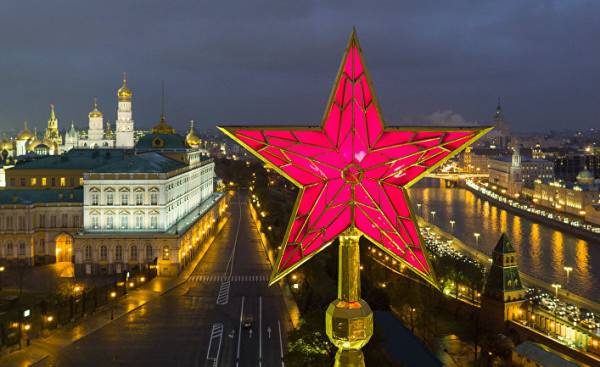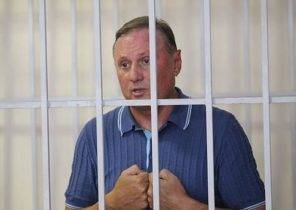
Recently, a lot is said and written about Russia’s ability to change the Western narrative in the field of international security system. Advocates of this genre of information warfare talk about “hybrid warfare”, “false narratives”, “the armies of the trolls” and “fake news” and “the transformation of information into a weapon.” While it has been suggested that Russia today — as never before — capable of changing Western narratives and create new narratives, whereas Western States have at their disposal are not effective tools to counter these attempts to provide malicious influence. From this point of view we can say that the West is faced with the enormous problem associated with false Russian narrative and the opposition to him in Ukraine, Syria, NATO, as well as a number of other issues.
However, it is argued that Russia — even if she is not able to change the Western narrative — has the ability to undermine domestic policies of Western countries and sow the seeds of doubt in Western societies. All this, as they say, gives Russia the opportunity to take advantage of a divided West, and also allow the Kremlin to achieve their political goals at the expense of Washington, DC and many European capitals.
In my opinion, the West has a much greater resistance against Russian “manipulation of the narrative” and its attempts to cause chaos in the field of internal policy of Western countries than suggested by proponents of the big influence of the Russian narrative. A large part of the discourse that is associated with the transformation of information into a weapon inside of the West, is limited in the sense of intelligence — and perhaps even politically motivated. This discourse also makes it easier for Russia to obtain at their disposal new tools — along with Western media since Western countries have created universal media hysteria based on trendy catchphrases and slogans, and, in addition, refused to make a reasonable judgment and rational analysis. Western countries have more to be concerned about the low level at their disposal military capabilities, and not bloated threats from false narratives.
Yes, Russia has acted aggressively for many years, in particular in respect of Georgia and Ukraine and also Syria, Libya, the Balkans, the Baltic States and many other places. Yes, Russia used a diverse set of tools — political, military, economic and other (including information) in order to achieve what she wants. But what else can you expect from a revisionist-minded superpower, disillusioned by the loss of their status in the period after the end of the cold war in the international order in security? And what can we expect from a country that is a problem in the future loss of prestige and influence because of their huge social problems, including demographic problems, as well as the downturn in the economy? Add to this the mode, feel insecure, not only because of external threats (including the expansion of NATO, the loss and the transition to the West many former Soviet republics), but also internal problems — and the ready recipe for massive inflation of the threat of the game for the spectators and aggressive behavior.
It should be noted that Russia in the last three years have been surprisingly successful in many areas. “Eastern expansion” of the West was stopped, the Ukraine and Georgia are subordinated, the future of Syria cannot be discussed without Russia, occupies a Central place, and the return of violence in the Balkans is only a matter of time — if Russia will make such a choice. Russia has strengthened its relations with the other revisionist great power in the world — with China. In addition, Russia’s role in Libya is growing, and it has the potential to be able to exert pressure on Europe, immigration and the spread of terrorism.
But if there is any area where the Russian actions have not been successful, so this is the information area. Despite numerous claims about the potential of Russia in the field of information warfare, the question must be asked: which Western narratives of Russia could change after the annexation of the Crimean Peninsula and the beginning of the proxy war in Eastern Ukraine? Ultimately, the West is United against Russia after 2014. And even the current President of the United States is not able to fix relations with Russia because of objections within the American political circles are forbidden to achieve a warming of relations — or relations in Russia. So strong is the prevailing Western narrative about Russia.
In fact, there is only one narrative in the West that Russia could change for the last three years. Before 2014, Russia was seen as a partner with whom to deal and cooperate. Here is what was said in the national security Strategy of the United States in 2014:
“Russia is undergoing economic transformation will go down in history as one of the great historical events of this century. The Russian government has made remarkable progress towards privatization of the economy and reduce inflation. However, much remains to be done to ensure that on the basis of deepening reforms to ensure lasting economic recovery and social protection. President Clinton has a significant and continuous support to this unprecedented reform initiatives, and he has mobilized the international community to provide structural economic assistance.”
The above mentioned approach has changed significantly in the first half of 2014. The Western narrative against Russia, developed and nurtured for nearly 25 years, has changed remarkably quickly. The role of Russia, from the point of view of the West changed, and the partner has become your enemy and even the enemy. A narrative about the possibilities of Russia could not change the strategic framework of the Western States in regards Ukraine, Syria or Libya. Rather, numerous attempts of Russia to change the Western narrative was a complete failure: no matter what anyone said or did Russia today is perceived extremely negative point of view. That said, for this reason, the U.S. permanent representative to the UN, Nikki Haley: “We can’t trust Russia. And we should never trust Russia.”
In order to get an idea about the possibility of Russia to change the narrative of the West in the field of security and defense, it is important to distinguish between fake news messages and headers, on the one hand, and narratives, on the other hand. Today, anyone can send a message to the outside world in one form or another — either through social networks or through traditional media sources. However, the situation is completely different when talking about what will be easy or even possible to change existing narratives or create new ones. Narratives inform people about how they “see” reality “in the outside world”, but even more importantly, the narratives are the basis of our identity.
Thus, the narrative is not only “publications and articles” that anyone can come up with. Narratives is a deep-rooted cultural constructs with which people make their conclusions about the social world. Narratives are “sticky” in nature and resistant to change, because changing narratives is meant to change how people identificeret themselves and how they see the outside world. As for narratives as a whole, there is a significant bias in favour of maintaining the status quo, not in favor of the changes.
The more such notions as “information warfare”, “the transformation of information into a weapon” or “hybrid warfare” have become major in a Western assessment of Russia’s relations with the West, the more over-emphasising the coherence and effectiveness of the Kremlin as the center of power, and will simultaneously present the risk of simplifying the internal debate in Western societies.
Yes, “the Kremlin” is trying to maximize its influence over matters of strategic interest to Russia, and this is done using many tools, including information. This is called the art of government. However, to see Russia for every problem in Western societies, in fact, meant to strengthen Russia as a strategic player, and not to limit its capabilities.
Western audiences tend to ascribe more virtues than it deserves. By focusing on the narrative of the Russian forces and the inability of the West to confront Russia, in fact, supplied new tools or new types of weapons to be used against Western interests. Western States through its own actions create hysteria in the community, and thus break the new “seams”. As a result, Western societies are becoming more vulnerable and more susceptible to outside influence. The recent — and still ongoing — the American political circus and media hype about a possible Russian relations the President of the trump and the alleged actions of the Russian hackers during the elections in the United States — all this is more of the attitude to Russia as a theme in American domestic politics than to Russia as a player. It is possible that Russia was trying to undermine the American political system during the presidential race, and maybe she even tried to do it for many years. However, the ongoing media charade in the United States has deeper roots.
American society in recent years has become so polarized politically and socially that any political topic — for example, Russia has started to be used in full measure in the domestic political maneuvering. But many American media corporations are in a symbiotic relationship with the divided political establishment. Yes, Russia did heinous things in the United States — she used subversive means. However, any analyst in the field of international relations should be self-evident that the process of deterioration of relations between the West and Russia began, at least ten years ago. It’s like in game theory, “International relations 101” (International Relations 101): opposing the great powers are doing nasty things. However, there is a distinction between attempt and successful completion.
The Western tendency to conceptualize “the Kremlin” as the center of all power in Russia, with its unobstructed ability to translate strategic objectives into action is, in fact, one of the reasons why Russia has some impact on the tactical level — in the process of conceptual analysis in the West, its scope and impact. The Western narrative about the Limitations and interdictions of access and maneuver (Anti-Access and Area Denial) is a good example in this regard.
When Russia deploys its ballistic missile complex 9K720 “Iskander-M” (SS-26 Stone) in Kaliningrad — it is a mobile missile platforms, which are designed to move; while their strategic or operational value is quite limited — at least until until the start of full-scale hostilities. However, when transferring the concept of Restrictions and interdictions of access and maneuver (A2/AD) of Asian theatre (Chinese Maginot Line) in Europe Russian nonstrategic military action acquires heightened relevance.
A simplified understanding of Russia together with the media hype concerning all that Russia is doing, lead to the formation of self-inflicted injury, which almost forced the Western States to play by the established Russian rules. For example, instead of having to ask the question of what targets can be destroyed with complexes “Iskander” in radius of 500 kilometers from Kaliningrad (this is the estimated range of the missile system SS-26), we ought to say: “so what?” The same applies to a different system of Restriction and prohibition of access and maneuver for anti-aircraft missile systems s-300 and s-400, as well as coastal defense systems “Bastion-P”. Modern military systems are not in themselves tactical success or achievement of a desirable political goals.
In addition, it should be noted that Russian military planners geo-strategic position of Kaliningrad is a nightmare. This enclave is practically an island within NATO, and it is located on the coast of the Baltic sea, which is, in fact, an inland sea with NATO and the European Union. Without the use of nuclear weapons would be virtually impossible to protect Kaliningrad in the event of a large-scale war. The deployment of “Iskander”, S-300,400 and “Bastion-P” do in this regard does not change.
So should Western States to closely monitor each placement of the arms and react to every ongoing Russian doctrine? If Western States decide that such actions are wise, then they give Russia the right to determine the rules of the game. They would also reinforce Russia’s ability to control their thinking, their actions and perhaps even their narratives. Instead of letting the Western media hype to influence political decisions, it would be desirable to pierce the finally “bubble A2/AD” in the Western strategic discourse is created by over-emphasising the Russian military capabilities in Kaliningrad, and in the Black sea. This does not mean that Western States should not change its priorities in the field of deliveries of arms after 25 years of turning into cash the “peace dividend” since the end of the cold war. There is a gap in opportunities in the European theater — between the Russian armed forces and European military forces.
Western countries, mainly in Europe, must begin to take seriously the defense. However, the time has come to stop relying on the analysis and based on the slogans excessive underlining the opportunities that Russia has to control Western narratives. Buzzwords rarely be a sound basis for the strategy in the field of security and defense. Hybrid warfare, information warfare and the wrong idea about Russia’s ability to change our narratives of the past three years get too much coverage in the media. However, the ability to get in the headlines does not equal ability to change deep-rooted in Western narratives.
Yuri was Raitasalo is a specialist in the field of strategy and policy in the field of security; he teaches at the Finnish national defence University. Previously, he was Professor of strategy at the Finnish national defence University. In this article, he expresses his own opinion.






